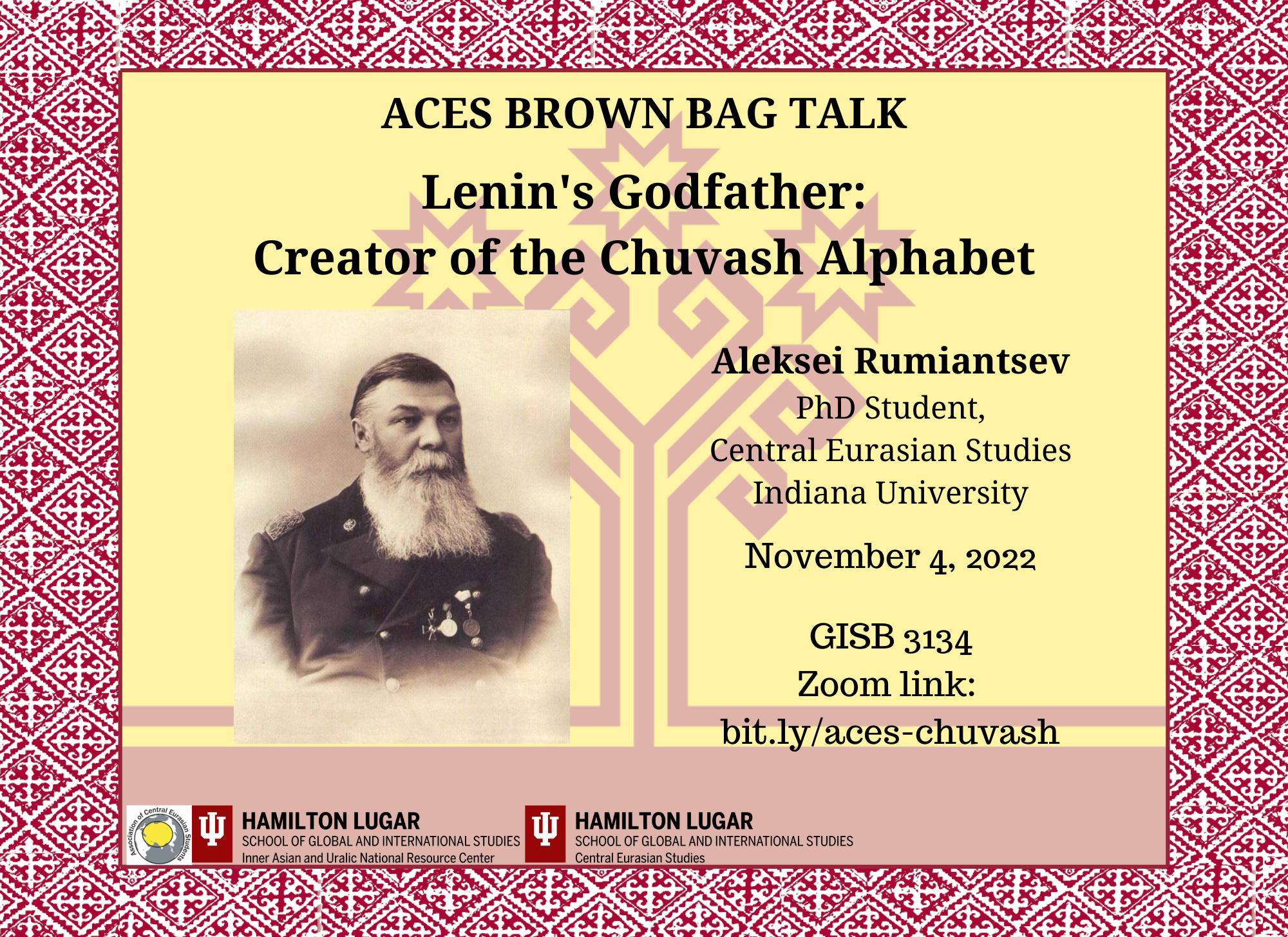On November 4th, 2022, CEUS PhD student, Aleksei Rumiantsev, delivered a presentation as part of the Association of Central Eurasian Students (ACES) Brown Bag Series titled “Lenin’s Godfather: Creator of the Chuvash Alphabet.” Rumaintsev, himself a Chuvash citizen of the Russian Federation, conducted extensive research on the development of Chuvash-language educational policies for schools in the Middle-Volga regions during the early 20th century.
Rumiantsev’s talk focused on the sociocultural and geopolitical significance of the connections between Ivan Yakovlev, a Chuvash educator and translator, and Ilya Ulyanov, public figure and the father of revolutionary, Vladimir Lenin. State records archiving the intimate details of Lenin’s family history have long been a topic of intense academic and historical debate, mainly due to the difficulty in corroborating the kinship between several members of his lineage as Russian, part Kalmyk, part Chuvash, and non-Slavic. Rumaintsev touched upon the work that Soviet Armenian historian, Marietta Shahinyan, undertook to unearth Lenin’s true ethnic background. The ethnic composition of Lenin’s family history, Rumiantsev explained, posed a threat that could have potentially undermined the strength of an ideological narrative that relied on the purity of “Great Russian” ethnocultural predominance. For the sake of preserving this predominance, Soviet authorities emphasized only the aspects of Lenin’s family history that best supported this narrative. Among the names in his multiethnic family tree, we seen Ivan Yakovlev, himself a great promoter of Chuvash language textbooks, the inventor of the Chuvash Cyrillic alphabet, a translator of great Russian writers (such as Pushkin and Tolstoy), and a superintendent of Chuvash schools in Chuvashia and Tatarstan.
Moreover, Rumiantsev taught attendees some key phrases in Chuvash and their greater significance, particularly in relation to the ongoing resistance to unpaid wages following mobilization. He explained that the protests that took place in the city of Ulyanovsk had the unique result of paying back wages owed to Chuvash conscripts by Putin’s decree.
At the end of the talk, Rumiantsev touched briefly on the history of the Chuvash religion, including the traditional pagan faith and the efforts by the Russian Orthodox Church to convert the Chuvash.
This and other talks in the ACES brown bag series are made possible by the support of the Inner Asian and Uralic National Resource Center at Indiana University.



 Hamilton Lugar School of Global and International Studies
Hamilton Lugar School of Global and International Studies